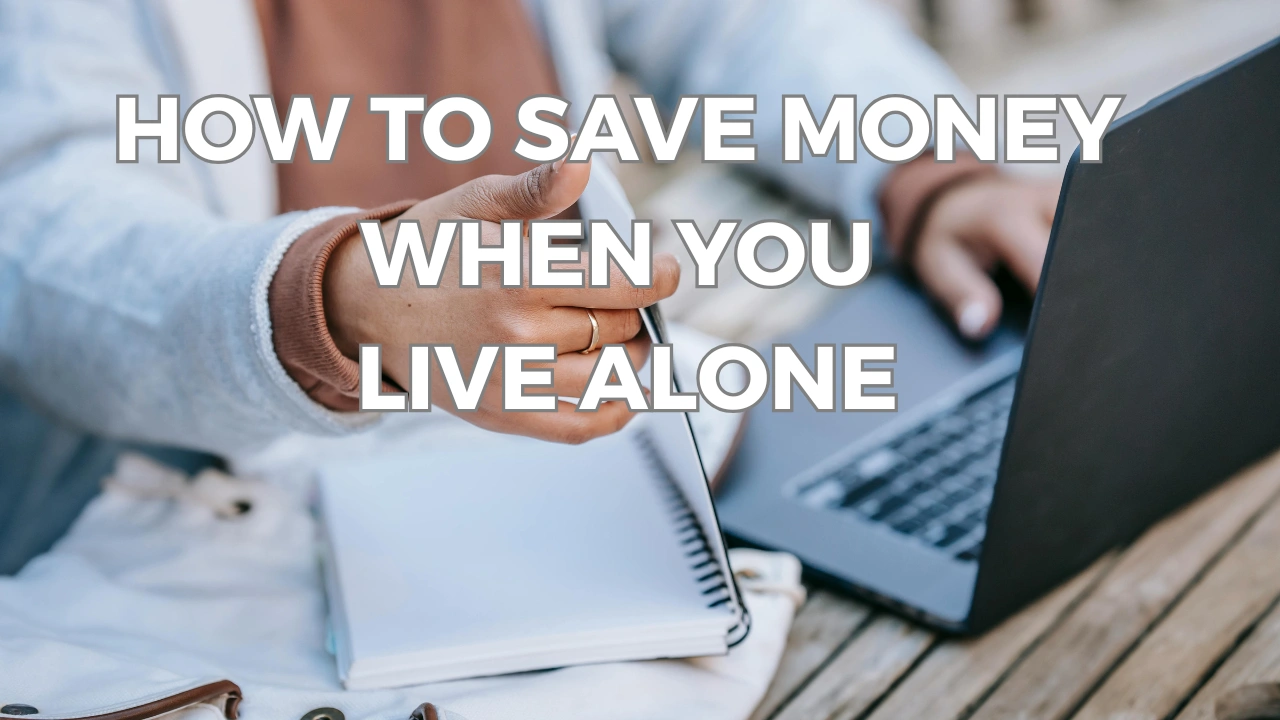Living alone feels like freedom no one to answer to, no one touching your stuff, and you can finally enjoy peace.
But then reality hits.
Grocery bills feel bigger, electricity costs shoot up, and somehow… your money disappears faster than you expected.
If you’re struggling to save money when living alone, you’re not alone.
In this guide, I’ll share real tips that helped me stop overspending and finally take control of my money all while living solo.
1. Start With a Budget That Fits Solo Life
When you live alone, every expense is your responsibility. There’s no one to split rent or share Wi-Fi bills.
So, the first thing you need is a simple solo-friendly budget.
Track where your money goes rent, groceries, electricity, takeout, streaming. Once you know where the leaks are, it becomes easier to save money when living alone.
Use free tools like:
- Notion
- YNAB (You Need A Budget)
- A simple pen & paper
2. Grocery Shopping = Plan or Pay
One of the biggest expenses when living alone? Grocery waste.
You buy ingredients thinking you’ll cook then they rot in the fridge.
Here’s how I fixed it:
- Plan 4–5 meals a week
- Buy only what those meals need
- Cook once, eat twice
- Freeze leftovers for lazy days
This system helped me save money living alone by cutting my grocery bills by 30%.
3. Kill the Electricity Leaks
Living alone means no one else to share the power bill.
Here’s how to save money when living alone on electricity:
- Turn off fans/lights when leaving a room
- Use LED bulbs only
- Wash clothes in cold water
- Unplug unused chargers or appliances
It might sound small, but these habits lowered my monthly bill by $10–15.
4. Limit Takeout (Without Feeling Miserable)
I get it. Cooking alone isn’t always fun. But food delivery adds up fast.
Here’s what worked for me:
- Set a takeout limit: 3 meals/month
- Save your favorite meal for the end of the week as a reward
- Learn to make 2–3 “lazy meals” (eg. sandwich + soup, rice bowls)
The trick is to keep it simple, not perfect. Even small changes help you save money while living alone.
5. Cancel What You Don’t Use
This one is underrated:
Review all your subscriptions Netflix, Spotify, gym, cloud storage.
Ask:
- Do I use this every week?
- Can I survive without it?
If not, cancel it.
You can always restart later.
This alone saved me ($25+), and I didn’t miss a thing.
6. Create a “Guilt-Free” Fun Fund
Living alone doesn’t mean you have to cut off all joy.
I set aside ($15–20) every month in a separate wallet called:
“Fun Fund”
I use it guilt-free for:
- Coffee dates with myself
- A movie night
- Snacks or impulsive buys
When the fund’s empty, no more fun stuff that month.
It gives me freedom without guilt — and keeps me on budget.
7. Replace Boredom Spending with Real Habits
When you live alone, boredom often turns into online shopping.
I used to open Amazon or Swiggy whenever I was bored.
Now I do this instead:
- Make tea
- Go for a walk
- Clean something
- Watch a free YouTube tutorial
- Call a friend
This one habit helped me save more money living alone than I expected.
8. Automate Your Savings Weekly
The easiest way to save?
Don’t trust your memory.
Automate your savings.
I set a rule:
- Every Friday, ($6–8) goes from checking to savings
Over time, this became invisible. And my savings quietly started growing.
Even if you live alone, this “Friday deposit” trick can help you build up $300–$800 year without effort.
Final Thoughts: You Can Save Money When Living Alone
It’s easy to assume solo life = expensive life.
But the truth is — when you learn to manage your habits, it becomes easier to save money living alone than with roommates.
You control what gets bought.
You control when things get used.
And you control how your money is treated.
So start small track your spending, set simple rules, and give yourself room to grow.
Your future self will thank you.

